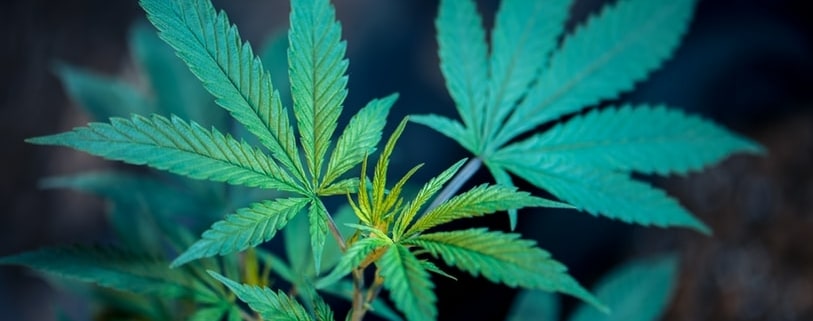CBD VS THC: What Is the Difference Between THC and CBD?
With the popularity of cannabis products today, consumers want to be savvy about their choices. Additionally, consumers need to find out everything they can about the differences between THC and CBD by understanding cannabidiol (CBD) products completely.
If you think cannabinoids may benefit you, but you’re not sure as to the interactions with prescription meds or want to know more about cannabis law in California, read on. It’s ultimately your responsibility to research everything you can about the CBD product that you choose from a Torrance Dispensary.
What are Cannabinoids?
With cannabidiol (CBD) being one of the trendiest products in pet and human health today, understanding CBD’s potential benefits before choosing from the vast array of CBD products means understanding cannabinoids and the differences between THC and CBD.
“Cannabidiol (CBD) is one of the naturally occurring cannabinoids found in cannabis plants. It is a 21-carbon terpenophenolic compound which is formed following decarboxylation from a cannabidiolic acid precursor, although it can also be produced synthetically,” via WHO.
Cannabidiol is derived from both the hemp and cannabis plant, and does not have psychoactive properties if it has no delta-9-tetrahydrocannabinol (THC). THC is the compound that results in the “high” effect, and it can be ingested via cannabis infused edibles as a psychoactive snack or inhaled.
How CBD and THC Affect the Body?
It’s interesting to note the different effects of both THC vs CBD products. Both of these interact with the body’s endocannabinoid system yielding totally different effects. With THC being the main psychoactive component that may result in relaxation, sleep, fatigue, hunger, and reduced aggression. It’s important to understand that THC via marijuana-infused edibles is more potent than cannabis that is smoked or vaporized. Today, THC is available in tinctures, oils, capsules, transdermal patches, and more. As an ingestible edible, THC is converted to 11-hydroxy –THC by the liver.
CBD is the most important cannabinoid in the cannabis plant, and has numerous medical benefits, yet will not interfere with cognitive abilities since it contains no THC. It has no binding affinity with CB1 and CB2 receptors.
Why Does THC Get You High While CBD Doesn’t?
\THC is processed differently than CBD by the body because 11-hydroxy-THC crosses the blood-brain barrier yielding a powerful “high”. Inhaled THC does not pass through the stomach and liver like edibles, but goes directly to the brain, thus the speedier effects of vaporized cannabis. That said, the effect does not last as long.
CBD, on the other hand, is not psychoactive, although it has the same molecular structure as THC. Both THC and CBD interact with cannabinoid receptors, resulting in the release of neurotransmitters from the brain.
Additionally, THC will bind with CB1 and CB2 receptors in the brain and body resulting in the “high”. CBD binds mildly with CB1 receptors and may lessen the “high” effect that THC will have on the body. Consult with your medical marijuana dispensary for the THC vs CBD tips.
How Do They Work Together?
CBD and THC have similar medical benefits. That said, although CBD is generally well-tolerated with minimal to no side effects, there may be side effects with drug-to-drug interactions. Low blood pressure patients also need to take heed since CBD may lower blood pressure. THC may have the following side effects:
- Coordination problems
- Dry mouth
- Red eyes
- Palpitations or increased heart rate
- Memory loss
- Euphoric “high”
- Slower reaction time
- Reduced nausea
- Reduced pain
- Altered sense of time
With CBD not having more than 0.3 % THC, the takeaway is that with all CBD products, consumers need to note the THC concentration amount. So for THC not to be psychoactive, you’ll have to purchase CBD with less than 0.3% THC. Understanding that THC and CBD don’t have to be mutually exclusive, and are actually beneficial when combined is important for consumers to understand. When combined they can be used for the following treatments:
- Anxiety
- Cancer
- Chronic pain
As usual, consult with your physician for the best advice when discussing the differences between THC between CBD products.
Usage (Medical and Recreational)
CBD and other cannabinoids offer numerous health benefits that have been backed up with new research. Marijuana will have a relatively high THC amount of between 15-30%, and can be used for either medical or recreational purposes today. This will depend on the state that you live in, and what the laws are for recreational and medical marijuana use. Medical marijuana has all the compounds including THC, whereas CBD will not have THC, yet will offer numerous health benefits as well.
Cannabis strains that are used to make recreational and medical marijuana will contain low amounts of cannabidiol. That said, consult with a CBD expert for advice on the differences between THC vs CBD products.
Hemp products may have a super low amount of THC (less than 0.03 %), and may show up as positive in a drug test. Additionally, CBD will not show up as positive in a drug test. Finally, consider only the best CBD products that offer lab test results, meet label claims, and that have been tested for any contaminants like glysophate, heavy metals, other herbicides and pesticides.





